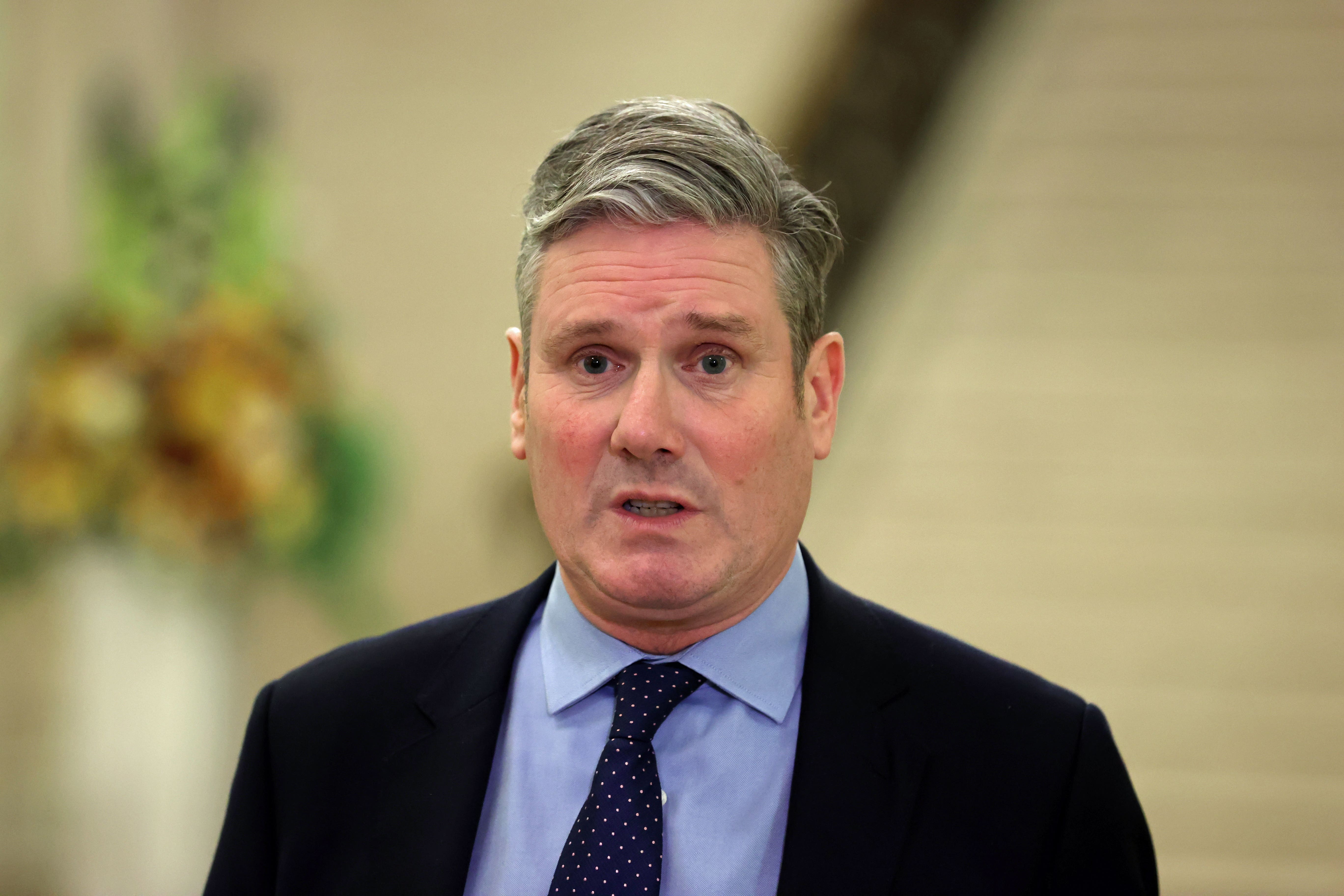Starmer dodges questions about crossing parliamentary picket line
Around 100,000 civil servants are due to stage a 24-hour strike next month.

Your support helps us to tell the story
From reproductive rights to climate change to Big Tech, The Independent is on the ground when the story is developing. Whether it's investigating the financials of Elon Musk's pro-Trump PAC or producing our latest documentary, 'The A Word', which shines a light on the American women fighting for reproductive rights, we know how important it is to parse out the facts from the messaging.
At such a critical moment in US history, we need reporters on the ground. Your donation allows us to keep sending journalists to speak to both sides of the story.
The Independent is trusted by Americans across the entire political spectrum. And unlike many other quality news outlets, we choose not to lock Americans out of our reporting and analysis with paywalls. We believe quality journalism should be available to everyone, paid for by those who can afford it.
Your support makes all the difference.Sir Keir Starmer declined to say whether he would cross any picket line at Parliament, when around 100,000 civil servants go on strike next month.
The Labour leader, taking questions from the media during a visit to Belfast to meet with political parties in Northern Ireland, was pressed on whether he would cross a picket line if some staff on the parliamentary estate joined the walk-out.
He has warned off frontbenchers from joining picket lines, with Sam Tarry sacked as shadow transport minister in July for giving unauthorised media interviews from an RMT demonstration.
I have made it very clear, I don’t want to see this industrial action. I want to lead a government that resolves these issues
The one-day strike by the Public and Commercial Services union (PCS) is set to go ahead on February 1.
Sir Keir did not give a direct answer to the question, telling reporters: “I have made it very clear, I don’t want to see this industrial action.
“I want to lead a government that resolves these issues. Under the last Labour government, you didn’t have a national strike for nurses. You had fair pay for nurses and we think we should be in the room negotiating, sorting out these problems.”